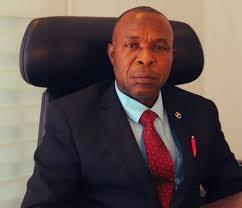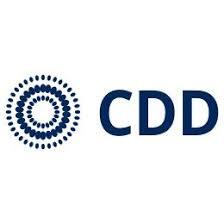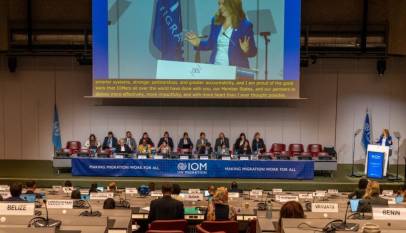Deepening Democracy, Development: Dauda Garuba Unveils Roadmap for CDD’s Role in West Africa’s Future
Dr. Dauda Garuba, the newly appointed director of the Centre for Democracy and Development (CDD-West Africa), speaks on his strategic vision for CDD, unveils his plans for how CDD will help address West Africa’s pressing democratic governance and sustainable development challenges.

Newspage: You were recently appointed as director of the Centre for Democracy and Development (CDD). What is your vision for repositioning CDD as a leading pan-West African civic organization?
Garuba: The Centre for Democracy and Development (CDD) has been active in West Africa since 1997, when it was formed. I appreciate that other civic organizations have come on board since then, which means the civic space in West Africa has grown bigger. I also understand that CDD has recently been doing more national (Nigeria)-level work. Therefore, my vision is to reposition CDD as the pan-West African organization it has always been, and also position it to play that continental-level outreach that it has also played over time.
The challenges of democratization and development in West Africa were what inspired the formation of CDD in the late 1990s; we need to do more because those challenges are now more obvious than ever before. This has prompted the need to redefine the CDD’s strategic objectives to allow it to achieve its West African mandate, particularly deepening democratic governance and development. These challenges have now transcended elections, and even as the conduct of elections is increasingly becoming challenging in the sub-region.
So, beyond elections, the challenges of peace and security and democratic governance are now graver than ever before. West Africa is now also dealing with issues of terrorism and counter-terrorism, banditry, kidnapping, human rights violations, challenges to the rule of law, and issues around transitional justice whose manifestations are cross-border in nature. On the development front, more challenges are emerging concerning livelihoods, poverty, and inequalities, largely associated with environment-related issues such as natural resource governance and the energy transition, which is part of the ongoing push for decarbonization.
West Africa is currently a hotbed of multidimensional challenges that call for a multi-stakeholder approach to address. These challenges require CDD to redefine itself to provide solutions to the sub-region’s prevailing democratic and development challenges. I will thus be working towards fostering the required partnerships necessary to help CDD rise to the occasion. I am committed to repositioning CDD to contribute to addressing West Africa’s contemporary challenges. To this end, there are preexisting partnerships we need to reactivate and new ones to forge. This will require a lot of hard work, yet we are optimistic we’ll be able to achieve it.
Newspage: In terms of strategic direction, what are your plans towards ensuring that this grand vision you have for the CDD and the sub-region as a whole comes to fruition; it’s one thing to have grand visions and entirely another to make them a reality?
Garuba: We are still articulating that vision; it’s still a work in progress. We are currently developing a strategic plan that will have two strategic pillars, i.e., democratic governance and development pillars. We will soon start implementing the strategic plan. We will start by diagnosing the subregion’s challenges vis-à-vis the crucial democratic and development challenges mentioned earlier; we will put them on the table and unpack every one of them. We will then identify the partners we need to work with to achieve our aim, including the kind of staffing required to achieve the predefined vision.
After finalizing the strategic plan, we will also need to share it with the wider community of stakeholders to ensure that it not only aligns with the vision of setting up CDD as an entity but also positions the organization as a leading West African think and do tank and gives it the right visibility necessary to enable it to reshape and influence the trajectory of West Africa’s democratic governance and development. Through this approach, we are optimistic we can enhance CDD’s impact and, by so doing, grow the revenue base of the organization, which is necessary to enable us to achieve our mandate.
Newspage: One of the current challenges that the West African region faces is the emergence of unconstitutional changes of government. What would you want to do differently to help address this existential challenge?
Garuba: The CDD was created to facilitate the deepening of democracy in the sense that democracy will provide development for the people. Some of the conflicts that existed when CDD was founded in the West Africa subregion were largely internal, like the civil wars in Sierra Leone, Liberia, and Guinea-Bissau, among other internal conflicts around the subregion. Today, our conflicts have escalated to the level of terrorism, banditry, and kidnapping, which has transcended national boundaries.
CDD will engage in research and also make the results or the findings from the research available to institutions or governments that are in a position to implement the recommendations or provide broader thinking or deeper meaning to the issues identified by our findings, especially from the perspective of implementation of the recommendations that are made by our research findings.
As a think-and-do tank CDD engages in academic and policy research as well as capacity development. We want to very much establish our presence in those areas where the region is grappling with challenges and ensure that in all our engagements, we do not speak from the perspective of hearsay but from the perspective of proven scientific evidence. We will ensure that our findings do not simply lament the problem; rather, they also provide the way forward regarding how we can get West Africa out of its current challenges. This is the only way we can ensure we provide essence to our research findings.
Newspage: West Africa’s major contemporary challenges have to do with deepening poverty levels, inequality, climate change, and the lack of inclusion of young people in political governance. What kind of interventions will CDD implement in this direction?
Garuba: Globally, there are benchmarks that countries rely on in assessing the state of sustainable development. At the moment, the one that seems to be more globally accepted is the Sustainable Development Goals (SDGs), which establish a benchmark below which citizens all over the world should not fall beneath in terms of indices related to the standard of living. These benchmarks are what guide the global agenda for development, which includes addressing poverty, inequalities, and climate change, among others.
It’s not going to be easy for countries to jump straight out of poverty into prosperity. Yet, there has to be a clear definition of what poverty is in our context and how exactly are we going to deal with the issue of poverty. As a subregion and a regional economic community, we should be able to design a parameter regarding the level of poverty we don’t want our citizens to fall below. These are the critical questions on governance and sustainable development we should be able to answer. For instance, if living on $2 and above per day is what we call the minimum standard of living, then we should be able to establish that as a benchmark for the sub-region and ensure that our citizens do not fall below it.
As CDD, all our efforts, both as a research organization, a think-tank, and a do-tank, would be geared towards addressing those challenges so that at the end of the day, we will have a subregion that can address and mitigate its development challenges. In a sense, democracy and development are complementary. If democracy is deepened, it delivers development just as development enhances democracy. Region-building or nation building is a continuous process. Yet, we are never going to get to that level where we say that we have achieved all that we want in terms of achieving sustainable development.
Editor’s note: This interview has been edited for length and clarity













